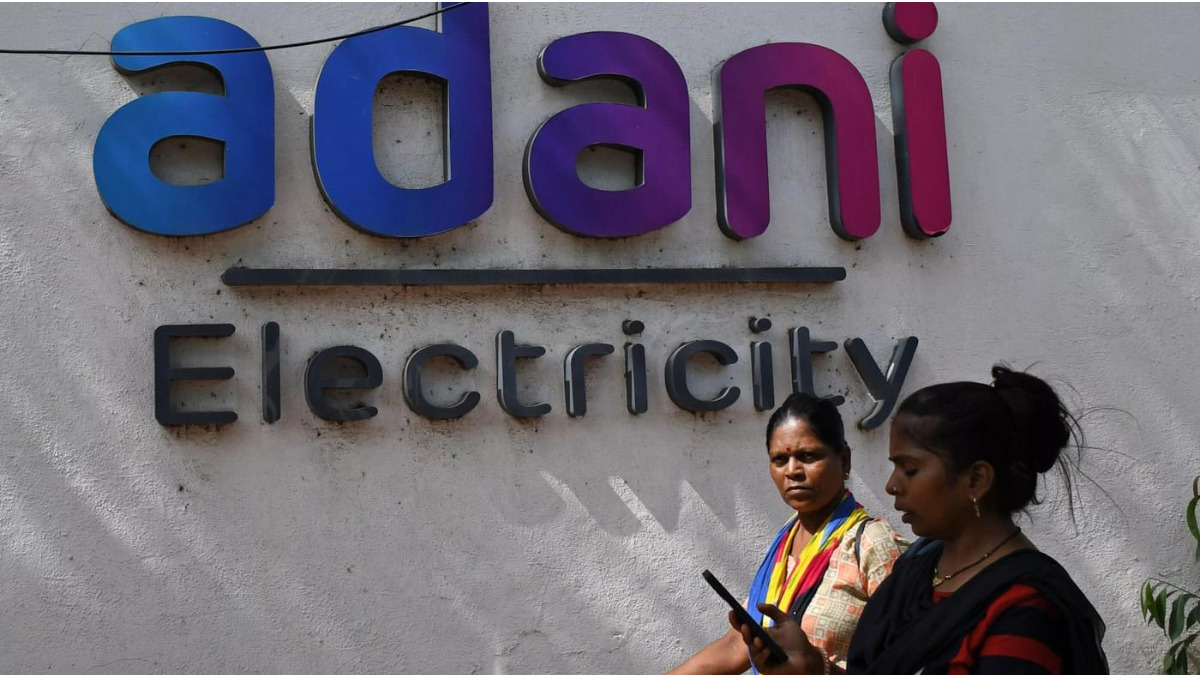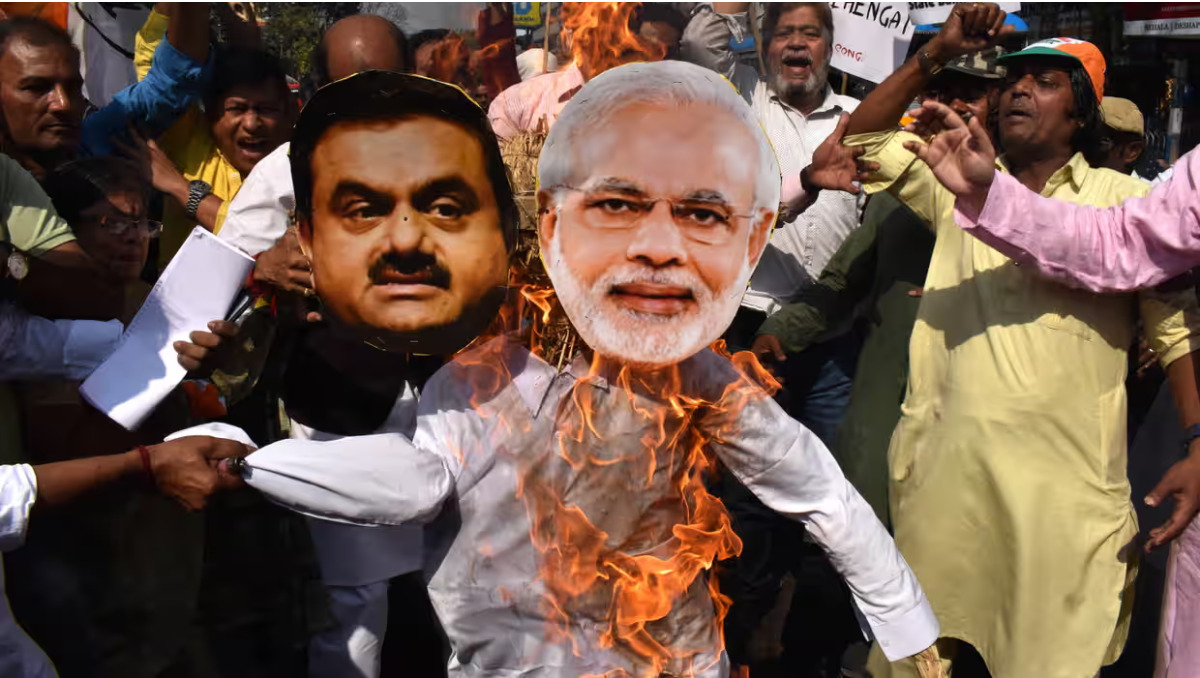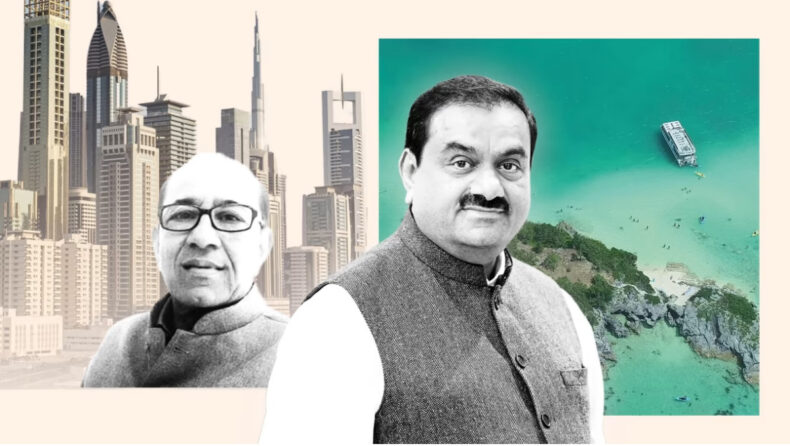The Adani Group has been accused of secretly investing in shares of their own companies, according to an OCCRP report on Wednesday.
Table of Contents
Hindenburg 2.0?
Fresh documents released by the Organised Crime and Corruption Reporting Project (OCCRP), made available to Financial Times and the Guardian, take aim at discrete functioning of “opaque offshore structures” connected with associates of the group who have been allegedly investing hundreds of millions of dollar into shares of the companies under the conglomerate since 2013. The report drew parallels between this activity and Gautam Adani’s rapid rise, accumulating a worth of around $120 billion in 2022, and becoming India’s richest and the world’s third richest person in the process.
However, serious allegations of “brazen stock manipulation and accounting fraud” made by Hindenburg, a New York-based financial research firm in late January this year caused disruption in Adani‘s rise to a peak market valuation of $288 billion in 2022.
Lambasted as pulling off the “largest con in corporate history” and accused of employing opaque offshore companies to inflate the valuation of it’s conglomerate by Hindenburg, the conglomerate lost nearly $100 billion from its market value, with Gautam Adani losing his top-3 spot among the world’s richest, despite strongly-worded denials of the allegations. The conglomerate, in an official statement, questioned the motives behind the report as being part of a “calculated attack on India” and an apparent disrespect of the “independence, integrity and quality of Indian institutions”.
Adani rejects “baseless” claims, “concerted efforts”
The recent batch of allegations seem to provide a deeper look into the conclusions arrived at by Hindenburg, by putting on display the flow of money from a complex network of offshore shell companies based in Mauritius, with investigations up until now running into dead ends. According to Bloomberg, Vinod Adani, Gautam Adani’s elder brother has also been implicated as being a major figure in these offshore operations by the report.
Two of Vinod’s associates have been linked to a pair of companies based in Mauritius, from where the money is alleged to originate. Furthermore, a Dubai-based investment advisory company headed by yet another one of Vinod’s associates guided investments into Adani’s stocks from the Mauritius-based funds, according to financial records and interviews.
The group, in a fresh response to the OCCRP allegations have rubbished them as nothing but a rehash of the “unsubstantiated” claims made by Hindenburg in a “concerted” attempt to revive discussions. Having mentioned their previous response to Hindenburg’s claims, the conglomerate “expressly” rejected the new allegations while denouncing them as false and baseless. Additionally, the group denied any implication of Vinod Adani having any role in day to day affairs of the company.
In perhaps a repeat of it’s situation in January, the group posted losses in the share prices of the ten companies listed in the conglomerate, along with the group’s dollar bonds. Shares of its flagship Adani Enterprises Ltd fell by 5.2%, while Ambuja Cements and NDTV posted losses of 3.66% and 1.92% respectively.

With the conglomerate landing in new hot water, it has the potential to spell hurdles for the Modi administration, with ties between the current Prime Minister and Gautam Adani dating back to 20 years. During the January furore, Modi was faced with increasingly substantial claims of dispersing “preferential treatment” to the conglomerate.
A January 2014 letter disclosed by OCCRP provides evidence that the Securities and Exchange Board of India (SEBI) was made aware by the Directorate of Revenue Intelligence (DRI) of alleged suspicious investments made into the group’s investments. A few months later the Modi government was elected, and according to OCCRP, the government regulator’s investigations seemed to fade away.

What the reports say
The collection of documents puts two Adani family associates and former directors of companies linked to the group, namely Chang Chung-Ling and Nasser Ali Shaban Ahli, at the epicentre of the enterprise. Beginning in 2010, the two established several offshore shell companies in Mauritius, British Virgin Islands and the United Arab Emirates. Four of those companies based in Mauritius, according to financial records obtained by the OCCPR, seemed to have transferred hundreds of millions of dollars into a large investment fund in Bermuda called the Global Opportunities Fund (GOF).
Allegedly, the money was further split up and funnelled from GOF into two GOF-subscribed funds, namely Emerging India Focus Funds (EIFF) and EM Resurgent Fund (EMRF) to further increase the opaqueness of the operation. The two funds then methodically spent years purchasing stocks of four Adani companies.
By May 2014, EIFF had invested around $190 million in shares of three Adani companies, while EMRF held Adani shares worth $70 million, amounting to two-thirds of it’s portfolio. As documents reveal, by March 2017 the investment in Adani’s shares apparently grew from a combined worth of around $260 million to around $430 million, 100% of the portfolio of the two funds, with money appearing to originate solely from Chang’s and Ahli’s shell companies in Mauritius.
Further, the reports conclude that the investments by EIFF and EMRF were made under the guidance of an investment advisory company based in Dubai, under the control of a known employee of Vinod Adani. The Guardian attempted to contact Chang who refused to comment on the documents lobbing allegations at him, while Ahli and Vinod Adani failed to respond.













